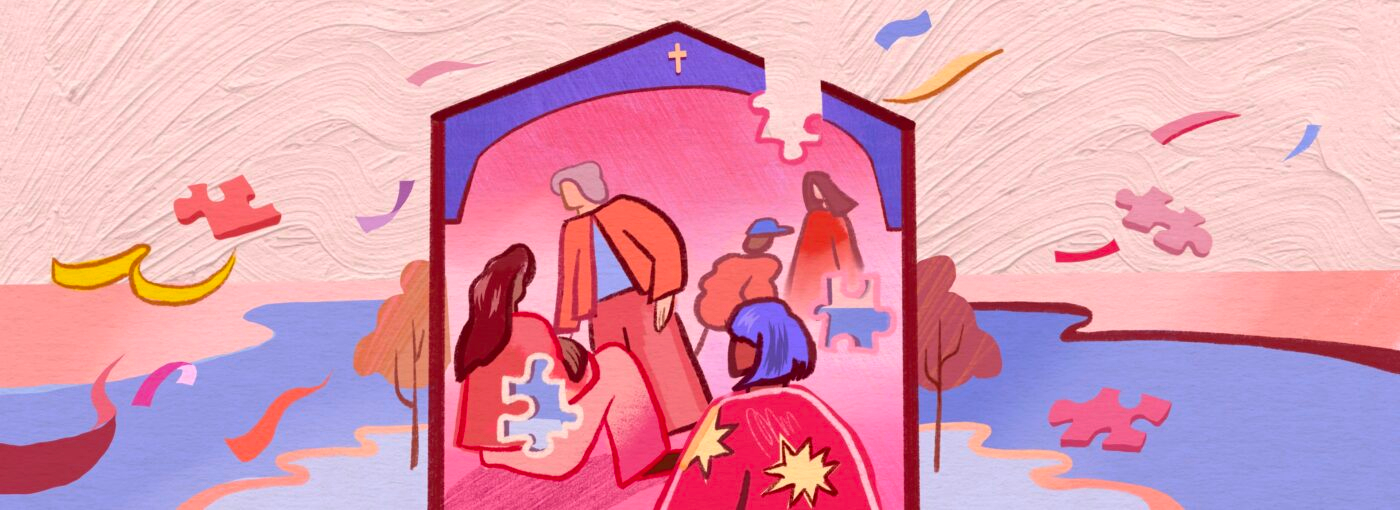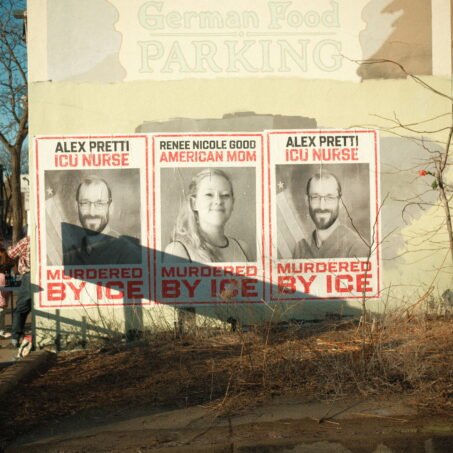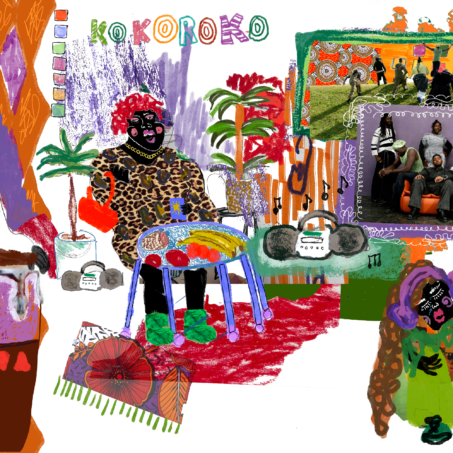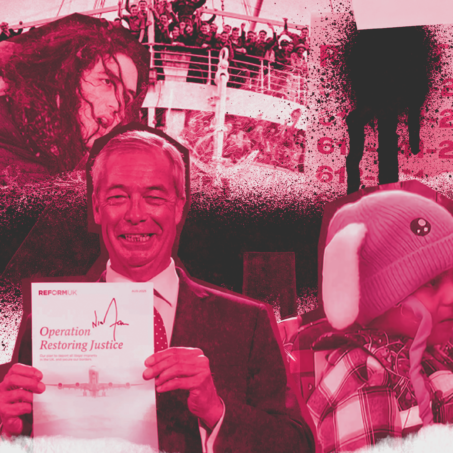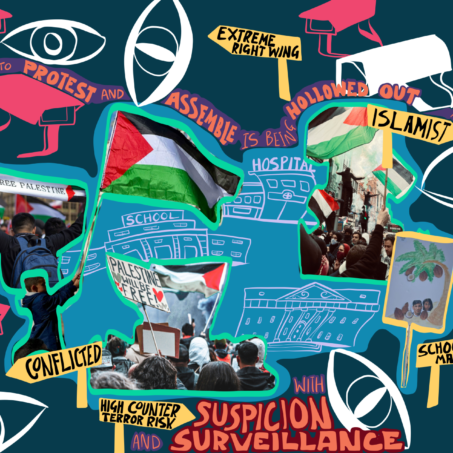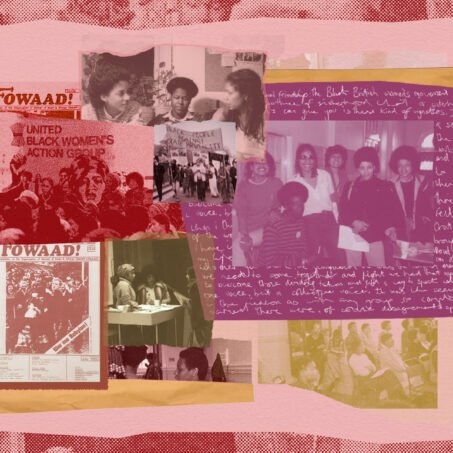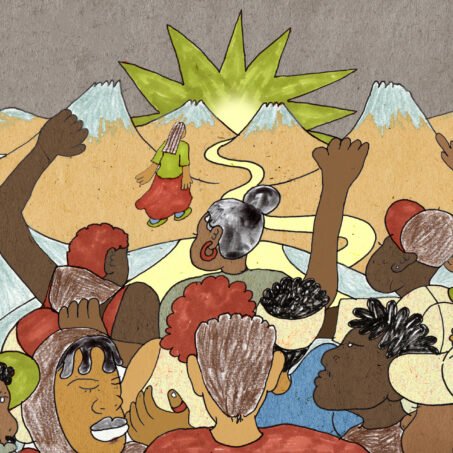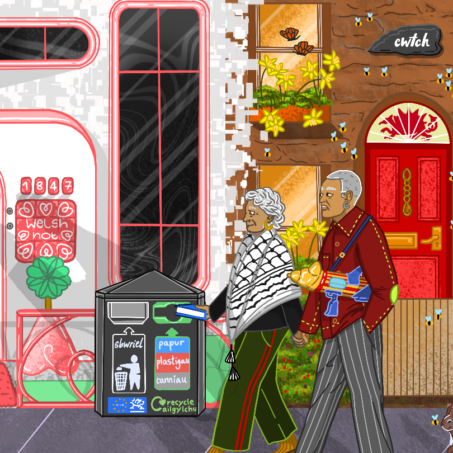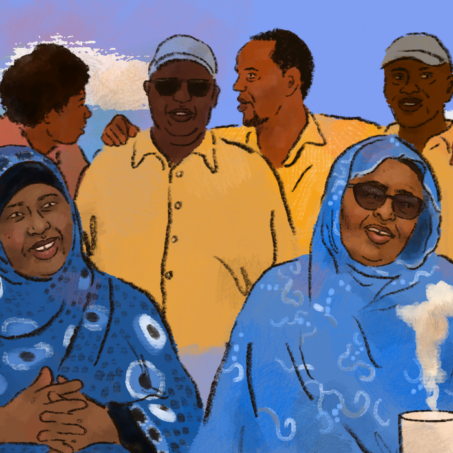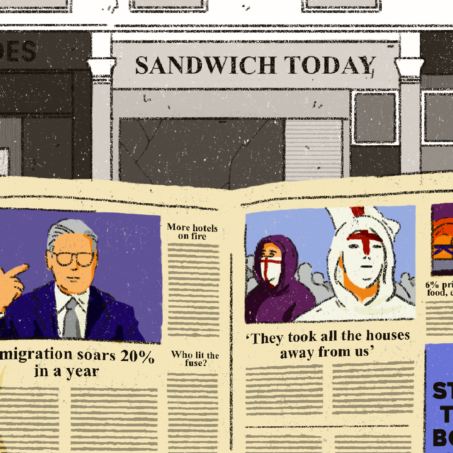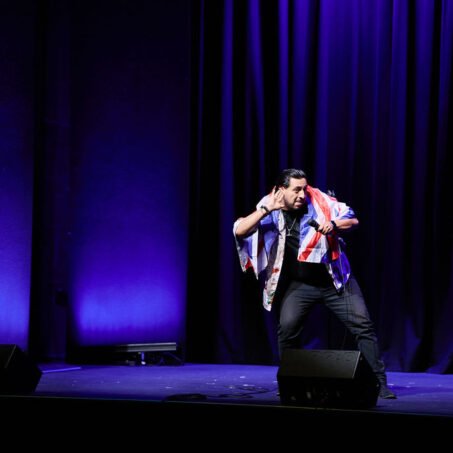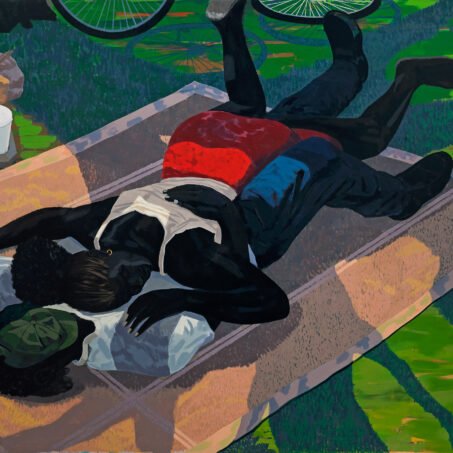Before autumn 2022, most people (myself included) had never heard of a ‘warm bank.’ Their rapid rise in popularity in the UK over the last few months has largely been in response to the cost of living crisis and energy bill price hikes, which has pushed millions of people into fuel poverty.
Essentially, warm banks are public, freely accessible, physical spaces for people to keep warm in winter – especially those who are houseless or those who can’t afford to heat their homes.
Typically warm banks have been spaces provided by libraries, community centres, churches, museums, small businesses and local cafes. But in many ways, informal networks of care and mutual aid have always operated through these spaces – whether it’s been through providing free meals or hot drinks, after school clubs or summer camps, and other opportunities for people to meet, express their creativity and ideas and commune with one another.
Libraries in particular are popularly imagined as these safe spaces, known for providing sanctuary and calm to those who may not have peace in their domestic lives, offering refuge from bullying and abuse, or even just giving people a renewed sense of purpose and wonder through learning beyond standardised education.
Take for example, Peckham’s own, primarily volunteer-run, library and community space The Feminist Library who have recently launched their own crowdfunding campaign aligned with the Co-op Warm Spaces Funding Boost to provide a warm hub.
“Public and grassroots libraries are one of the only places you can go to for free that are sheltered and have facilities available for everyone to use without showing ID or needing to buy anything,” their Admin and Finance Coordinator Alice Thompson affirms.
So what’s so special about the current fascination with ‘warm hubs’?
The large-scale coordination of and support for these grassroots mutual aid initiatives in the UK has been mainly spearheaded by an organisation called the Warm Welcome Campaign. Established in August 2022 by the ChurchWorks commission alongside other key partners, the group’s website has an interactive map which signposts over 4000 registered organisations that have opened “free, warm, welcoming spaces for the public” over the winter period. Registering as one of these spaces gives voluntary organisations access to a number of assets, including volunteer recruitment materials, safe space guidance, fundraising toolkits, and branding materials.
So why are the majority of the Warm Welcome Campaign’s partners Christian organisations?
As much of a positive, valued contribution this campaign has been for activating community organising across the country, there has been one thing nagging at the back of my mind. When you scroll through the ‘Partners’ section of the Warm Welcome Campaign’s website, you’ll find that a substantial number of the organisations, including The Salvation Army (who have a history of discrimination against LGBTQI+ communities), are Christian. There are also giving platforms such as Neighbourly, the Community Managed Libraries National Peer Network, and Islamic Relief space on the list too, but these are few in comparison to the number of Church-led organisations.
It prompted me to ask: is this because the ChurchWorks commission founded it in the first place so it has naturally built upon existing networks in faith? Or are there specific reasons as to why more of these faith-based organisations are partners in a community response to a crisis which affects people of all walks of life, religious or not? And how do people’s preconceived notions and experiences with religion impact how safe or welcome they feel in these spaces?
The UK’s relationship to Christianity
Any person growing up or living in the UK can attest to the historic dominance of churches and cathedrals throughout the country’s geographical landscape. They are not hard to come by, and many community social and cultural activities are hosted in these spaces, from Alcoholics Anonymous meetings to Youth Performing Arts clubs.
In fact, according to the National Churches Trust data, there are over 40,000 church buildings in the UK.
While this may in part explain why so many Warm Welcome Campaign partners are church and faith organisations because they have the space, the origin of the money needed to provide these services raises red flags. Not only does their nature as tax-exempt properties display a continued archaic policy in the UK, we also know that historical investments in the transatlantic slave trade have contributed to the Church of England’s own amassing of wealth over time.
My intention here is not to put Christianity as a whole under fire or argue that help from faith-based organisations should be refused entirely because of historical wrongs. Let’s not forget, the Quakers were one of the first religious movements among white people to condemn and advocate against slavery. The purpose is rather to get us to question who gets to help who and why, what that help looks like, and how that impacts the people on the receiving end of that care.
Spatial Justice: where worlds of architecture, urban planning and activism collide
The rise of warm banks urges us to confront the Achilles heel of community activism and mutual aid efforts in the present urban geography of late-stage capitalism: securing long-term, no-strings-attached, free-to-use, physically safe, and inclusive spaces where people can organise and distribute resources with one another.
Right now, libraries, grassroots community hubs, youth centres, and small businesses are increasingly being relied on for these spaces and public services whilst struggling against their own inflationary pressures, unprecedented funding cuts and energy costs.
Alice shared their thoughts on this, too. “Seeing so many organisations having to crowdfund to simply raise money to continue with the same activities, developing locations for community fridges and organisations tackling poverty and isolation through support with the cost of living is extremely disheartening,” they share. It’s hard to ignore the irony of how some of the most under-resourced groups and people are providing the things that governments claim to be adequately providing for their people – like food, clothing, shelter, water, and education.
Alice continues: “Funding for these places is constantly being slashed as the government deem them not to be capital generating.” Along with the cost of living crisis affecting The Feminist Library’s usual public donation inflow to cover its running costs, they add that “all the tenants in our building are currently facing a 100% increase in our service charge from Southwark Council.”
As a result, often the only option left for these groups to be able to exist in these spaces is to mobilise with the general public and community via crowdfunding and advocacy.
Spatial Justice, a concept popularised by urban theorist and political geographer Edward Soja, helps us understand why denaturalising space and distribution of resources is so vital to this.

Join our mailing list
Sign up for shado's picks of the week! Dropping in your inbox every Friday, we share news from inside shado + out, plus job listings, event recommendations and actions ✊
Sign up for shado's picks of the week! Dropping in your inbox every Friday, we share news from inside shado + out, plus job listings, event recommendations and actions ✊
To summarise briefly, critical Spatial Justice looks at “the fair and equitable distribution in space of socially valued resources and opportunities to use them.”
Applying this thinking means that instead of just taking for granted that Christian and other faith-based organisations have more resources to give than groups like The Feminist Library, we need to ask ourselves why this is the case.
Not just out of curiosity, but to identify what enables organisations and individuals to claim public space so that we can incorporate this into grassroots organising strategies for building alternative support networks outside of the state and be more transparent about hierarchies.
In the words of UCL MSc Social Development Practice Professor Andrea Rigon, “space is not a container of human activity but an active force shaping human life.” If physical spaces are simultaneously shaping and shaped by human social life, it is ever important that we ensure attempts at liberation and justice via warm banks and other mutual aid efforts avoid replicating the same hierarchical capitalist culture that we are trying to break free from.
Whilst warm bank partners stepping in to provide spaces for people is helping them literally stay alive through the cold winter of austerity, are the celebrations of these efforts and good news stories by mainstream media outlets and local authorities distracting from the systemic changes in our economic and political systems that are so desperately needed?
How can we avoid co-optation of these radical efforts and placations like the NHS clap for carers which has yet to translate into any real wage increases and support for the doctors and nurses that kept the country running throughout the pandemic?
The need for better redistribution of resources in activist movements
In my experience organising with various migration and racial justice groups in London, there’s a never-ending demand for access to spaces to make campaigns, activities, and initiatives like warm banks happen.
What our movements need to explore more of is how we potentially navigate and repurpose these relationships with faith-based organisations in order to claim more spaces, whilst avoiding the pitfalls of White Saviour cliches, co-optation, and exclusionary tendencies that religions can sometimes perpetuate.
This can look like drafting our own terms of agreement and safe spaces policies that we can share with these organisations, making it clear that if groups want to provide a venue to support an initiative that they commit to long-term, sustainable learning and community development instead of just tick-box exercises. Or even setting clear boundaries with venues about how they publicise their acts of giving and transform ‘charity’ framed tropes into radical discourse.
Finally, there’s the further option of encouraging these organisations which have amassed historical wealth to consider redistributing their financial, spatial and other resources with the community – not just offering them for charity but also making them available to groups doing radical organising on the ground for meetings and so forth.
And in a period of British (and world) history where we are seeing Anti-trans hate skyrocketing, it’s vital that we protect the interests and safety of those who may not feel comfortable being in religious environments because of associated traumas and discriminatory action taken by people on grounds of religiosity.
Going beyond relying on (but not abandoning) religious organisations and buildings’ charity, we need to thicken and expand our networks of Warm Banks and other safe public spaces. Free access to ‘third places’ like these not only allows us to coordinate support for society’s most marginalised, but also helps us break down the isolation of daily life under capitalism and build experiments in otherwise.
What can you do?
- “The City and Spatial Justice” Article by Edward W. Soja, JSSJ, n0 01 septembre, september 2009 To quote this article: “The city and spatial justice” [« La ville et la justice spatiale », traduction : Sophie Didier, Frédéric Dufaux], justice spatiale | spatial justice | n° 01 septembre | september 2009 | http://www.jssj.org A short journal article summarising Edward W. Soja’s theory of ‘Spatial Justice’ and it’s relevance for radical community organising in late stage neoliberal capitalism.
- There’s Something in the Water: Environmental Racism in Indigenous & Black Communities – book and documentary by Ingrid Waldron. Explores the injustices and injuries caused by environmental racism in her home province, in this urgent documentary and book on Indigenous and African Nova Scotian women fighting to protect their communities, their land, and their futures.
- The Warm Welcome Campaign website. Take a look at their interactive map of over 4000 registered organisations that have opened or are opening up free, warm, welcoming spaces for the public across the UK. Information is also available about how to register your own warm welcome space. Warm Welcome Space
- Mutual Aid: Building Solidarity During This Crisis (and the Next) – Dean Spade. A short, insightful and practical guide to Mutual Aid – the radical act of caring for each other while working to change the world. Learn more about what mutual aid is, best practices and pitfalls. Mutual Aid: Building Solidarity During This Crisis (and the Next)


